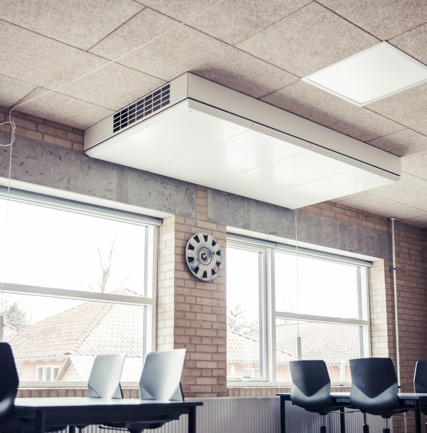A bad indoor climate has big consequences for our children

3. February 2023
The mass experiment 2021 is organized by the national science center Astra, developed in collaboration with the Danish Technical University (DTU) and funded by the philanthropic association Realdania. A total of 709 classes participated, spread over 234 primary and lower secondary schools throughout Denmark. The purpose of the experiment is to shed light on the connection between the indoor climate, the well-being and concentration ability of children and young people.
The mass experiment has recently been published, and the results are breathtaking. The development over the past 13 years is hard to spot; because there has not been any. And that's critical. We have long known that a bad indoor climate can cause difficulty concentrating, malaise, headaches, etc., but that it can also make a professional difference of up to a year over an entire school life attracts attention:
“Children and young people's performance abilities are negatively affected by a poor indoor climate. We know that it is not necessarily super-exciting to talk about ventilation units, CO2 levels and room temperatures, but there is a need for us to put it on the agenda. The problem is far greater than what we actually think, and it affects the well-being of our children. We have to act on that! We have to put pressure on politicians, municipalities, and administrations. And we are already late in doing so, ”says Lasse Mikkelsen, CCO at Airmaster.
“Through the Mass Experiment, it has now been made clear that there are great gains to be made by, among other things, improving the air quality in the rooms in which the children use. The ability to concentrate will improve and they will become more physically well-adjusted. It is always important to remember to ventilate, but mechanical ventilation can be crucial for a sustainable healthy indoor climate. Therefore, it is only natural for Airmaster to join the debate now. Both because we are experts in school ventilation and indoor climate – but also because it would be wrong of us not to do so. 53% of the participating classes in the Mass Experiment are above the recommended limit for CO2 concentration. Our children do not deserve this” he says.





